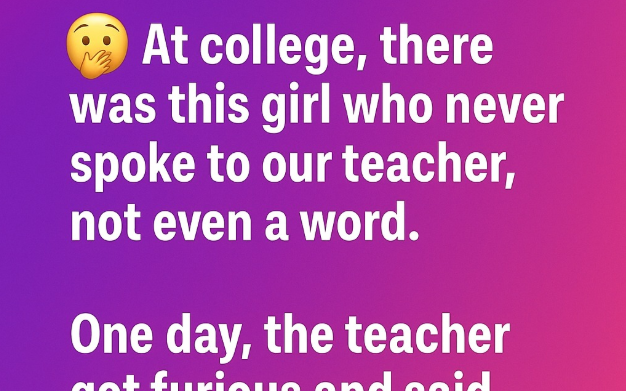In college, a young woman named Sarah never uttered a word to our professor—not a single syllable. She consistently chose a seat in the front row, diligently jotting down notes, absorbing every lecture with keen attention, and turning in every assignment promptly. Many of us thought she was simply reserved. Then, one afternoon during a lively class discussion, the professor, visibly frustrated, exclaimed, “Sarah! Has no one ever shown you how to join a conversation?” A heavy silence blanketed the room.
Without a moment’s pause, Sarah rose from her seat, walked confidently to the whiteboard, picked up the professor’s marker, and began writing. In clear, deliberate strokes, she wrote, “An accident took my voice two years ago, but my thoughts remain vibrant.” Her words lingered in the air, resonating with a quiet strength that outshone any spoken voice. The professor stood still, struck by the gravity of his error, while the rest of us sat in awe, a mix of regret and respect stirring within us.
Sarah turned to face the class, offered a gentle smile, and wrote again: “Few people inquire. They just make assumptions.” That single moment shifted everything. From then on, the professor engaged with her through handwritten notes and subtle gestures. Several classmates began studying basic sign language, eager to bridge the gap. The classroom gradually evolved—becoming more thoughtful, more empathetic, and more attuned to others’ experiences.
Years later, Sarah’s presence still lingers in my memory. She imparted a lesson no textbook could ever teach: strength doesn’t always roar, and those who speak the least often hold the most profound insights. Sometimes, the most enduring lessons aren’t voiced—they’re experienced, understood, and cherished long after the moment passes.







